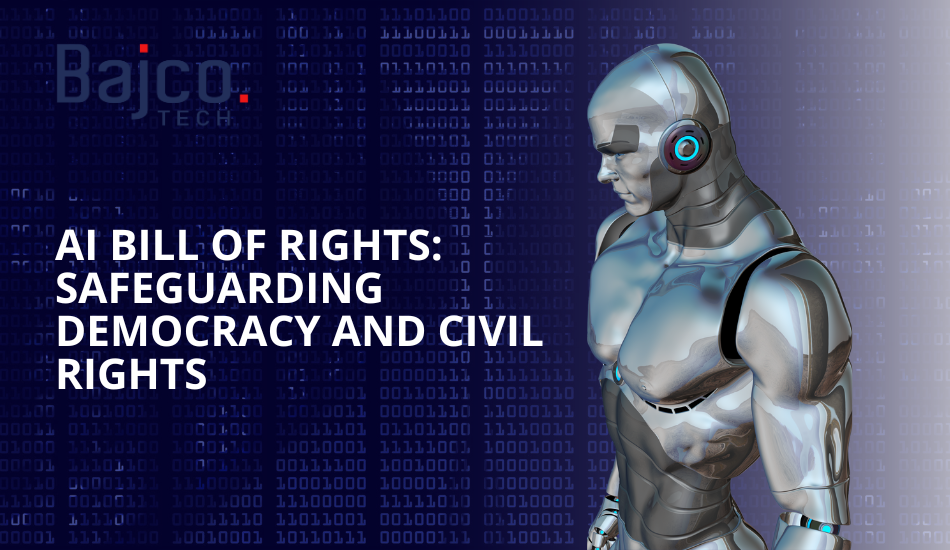The great challenges posed to democracy today are the use of technology, data and automated systems in ways that threaten the rights of the American public. From unsafe healthcare algorithms to biased hiring decisions, the potential harm is well-documented. However, this harm is not inevitable, and the power of technology can be harnessed to benefit society. President Biden’s administration, recognizing the importance of preserving civil rights and democratic values, has outlined a Blueprint for an AI Bill of Rights to guide the responsible use of automated systems.
The Blueprint for an AI Bill of Rights is based on five key principles:
- Protection from unsafe or ineffective systems.
- Consultation with diverse communities and experts during development.
- Pre-deployment testing, risk identification, and ongoing monitoring.
- Proactive measures to protect against unintended uses or impacts.
- Prohibition of discrimination by algorithms.
- Proactive equity assessments during system design.
- Use of representative data, protection against proxies for demographic features.
- Independent evaluation and public reporting to confirm protections.
- Protection from abusive data practices.
- User agency over data usage.
- Privacy safeguards by default in system design.
- Enhanced protections for sensitive domains and youth.
- Clear and accessible documentation of system functioning.
- Notification of system use to those impacted.
- Explanation of outcomes in plain language.
- Timely updates on significant changes.
- Opt-out options for users.
- Access to human alternatives where appropriate.
- Timely human consideration and remedy processes.
- Tailoring of systems within sensitive domains for specific purposes.
The Blueprint is designed to apply to all automated systems that have the potential to impact individuals’ or communities’ exercise of rights, opportunities, or access to critical resources or services. These rights include civil rights, equal opportunities, and access to critical resources or services.
The Blueprint’s two-part test ensures that it remains relevant in the face of rapidly evolving technology. It applies to automated systems with the potential to meaningfully impact the American public’s rights, opportunities, or access.
In an era where technology shapes our daily lives, the intersection of democracy and innovation poses both challenges and opportunities. Bajco Tech, at the forefront of this digital landscape, plays a pivotal role in ensuring that technological advancements align with democratic values. In this blog post, we delve into the critical issues surrounding technology, data, and automated systems, and how Bajco Technologies is contributing to a safeguarded, democratic future.
The implementation involves incorporating the outlined principles into policy and practice, with detailed steps provided in the "From Principles to Practice" handbook.
Adherence to the principles will involve a collaborative effort, with input from diverse stakeholders, and independent evaluations and reporting to ensure transparency and accountability.
The Blueprint emphasizes proactive equity assessments, the use of representative data, and independent evaluations to prevent algorithmic discrimination and ensure equitable system design and use.
In an era where technology plays an ever-expanding role in our lives, it is crucial to ensure that progress does not come at the expense of civil rights and democratic values. The Blueprint for an AI Bill of Rights sets the stage for responsible innovation, providing a guide for developers, policymakers, and stakeholders to create and deploy automated systems that benefit society without compromising individual rights.
Resource: Blueprint for an AI Bill of Rights

